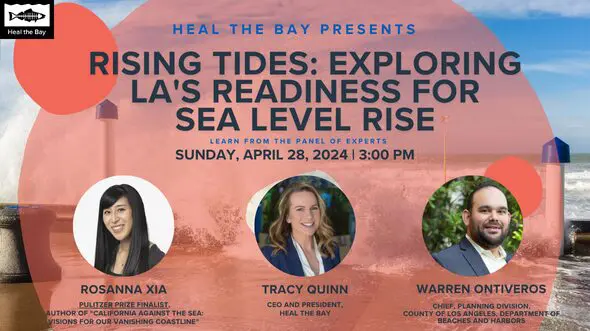Steering Clear of Bad Fertilizer
Long Beach / AvalonMalibu / Pacific PalisadesMarina del Rey / Playa del ReyPalos Verdes PeninsulaSanta MonicaSouth BayVenice Beach
“The same nutrients that make your grass grow also will make algal blooms grow if they wash down the storm drains and into the waterways,” notes Susie Santilena, an environmental engineer in water quality at Heal the Bay.
The nitrogen and phosphorus in fertilizers that are so good for plants, may contribute to toxic red tides in the ocean and can make algae run wild in freshwater areas like Malibu Creek, creating dead zones as the green scum blocks sunlight and inhibits the growth of other plants and animals, Santilena says.
The algae even wreaks havoc when it dies, because it sucks oxygen out of the water as it decomposes, a process known as eutrophication.
“When you don’t have oxygen in your waterway, your marine life suffocates and you get fish die-offs because there’s no dissolved oxygen in your water,” she says. “And there are aesthetic issues—algae growth can create pond scum, which is just kind of gross to look at in waterways.”
So what to do? It’s tricky, environmental advocates say, because while organic fertilizers such as steer manure and worm castings have advantages that chemical fertilizers don’t share, both can create destructive runoff if they aren’t applied carefully.



